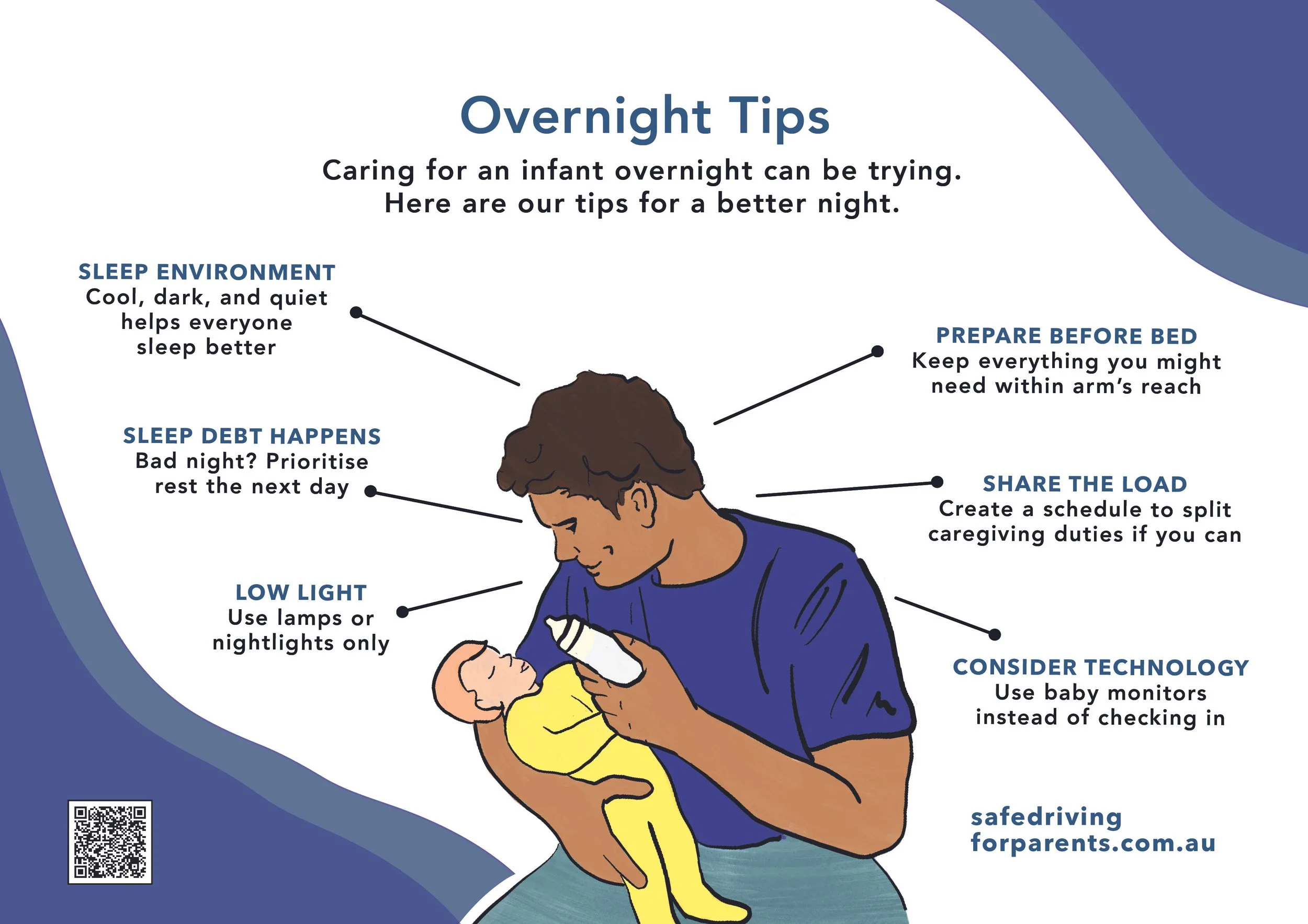
Tips When Providing Overnight Care
SAVE | SHARE | DOWNLOAD
Use this infographic as an ‘in your pocket’ reminder and guide. You can easily save this directly to your phone or click to down a jpeg/pdf.
Science Backed Tips
Sleep Tips When Providing Overnight Care for Children
Do not turn on overhead lights or use devices when you get up to care for your child. This will make it easier to get back to sleep afterwards. Consider using nightlights or lamps with low wattage light globes.
Prepare anything you need for overnight caregiving in advance, to minimise the amount of time you spend awake. This might include:
Have everything you need in easy reach, including nappies, bottles, and other supplies
Pre-measuring formula into bottles
Knowing where medical supplies are located
If another caregiver is available to provide overnight care, establish a schedule to share the load. It is important that all caregivers / parents have the opportunity to sleep and recover.
Consider using technology to monitor your child/children rather than waking up to check on them. Beware of volume controls though – ensure your volume is loud enough to hear them but not so loud it keeps you awake.
Mindfulness and relaxation techniques can be useful to help you get back to sleep after overnight caregiving
Set up a good sleep environment for you and your child (e.g., cool, dark, and quiet).
If you’ve had a bad night of sleep, try to schedule in a nap and/or an early bedtime the following day.
VIEW OTHER RESOURCES
Use these infographic as an ‘in your pocket’ reminder and guide.
You can easily save the images directly to your phone or download them from each resource page.






